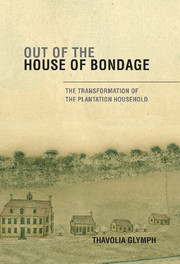Book contents
- Frontmatter
- Contents
- Acknowledgments
- Abbreviations
- Introduction
- 1 The Gender of Violence
- 2 “Beyond the Limits of Decency”
- 3 Making “Better Girls”
- 4 “Nothing but Deception in Them”
- 5 Out of the House of Bondage
- 6 “A Makeshift Kind of Life”
- 7 “Wild Notions of Right and Wrong”
- Epilogue
- Bibliography
- Index
- References
6 - “A Makeshift Kind of Life”
Free Women and Free Homes
Published online by Cambridge University Press: 05 June 2012
- Frontmatter
- Contents
- Acknowledgments
- Abbreviations
- Introduction
- 1 The Gender of Violence
- 2 “Beyond the Limits of Decency”
- 3 Making “Better Girls”
- 4 “Nothing but Deception in Them”
- 5 Out of the House of Bondage
- 6 “A Makeshift Kind of Life”
- 7 “Wild Notions of Right and Wrong”
- Epilogue
- Bibliography
- Index
- References
Summary
I think I was very foolish last month to make up beds and wash soiled dishes. I began seriously to think that it was in very bad taste to have three meals in one day and wondered at the rapidity with which my homely but necessary duties followed each other and if I had dessert, or the plates were changed, seriously considered the subject in a new light, as so many more dishes to wash.
Gertrude Thomas, employerCelestine left suddenly taking Rosella with her without any provocation from me or notification to me.
Tryphena Fox, employerMrs. Wms has engaged Anna for a cook.…She used to be about us when we lived at Gravel Hill and was a very good woman, but they have all changed so she may not be worth much now.
Sarah Palmer Williams, employerCretia is the comfort – animal comfort – of my every day life.
Mary Pringle, employer“I have such a nice servant in Katy,” Elizabeth Porcher wrote to her sister in 1866. “She is a nice washer and a good cook and has a little girl of Annie's size who helps a good deal and I am to give her $8. I really hope I am at last comfortably fixed. I never have to show her anything hardly and she is so humble and civil.” In the coming years, Porcher would see that prospect dissipate bit by bit. She would see her share of poverty and servants not so “nice” or “humble.”
- Type
- Chapter
- Information
- Out of the House of BondageThe Transformation of the Plantation Household, pp. 167 - 203Publisher: Cambridge University PressPrint publication year: 2003



